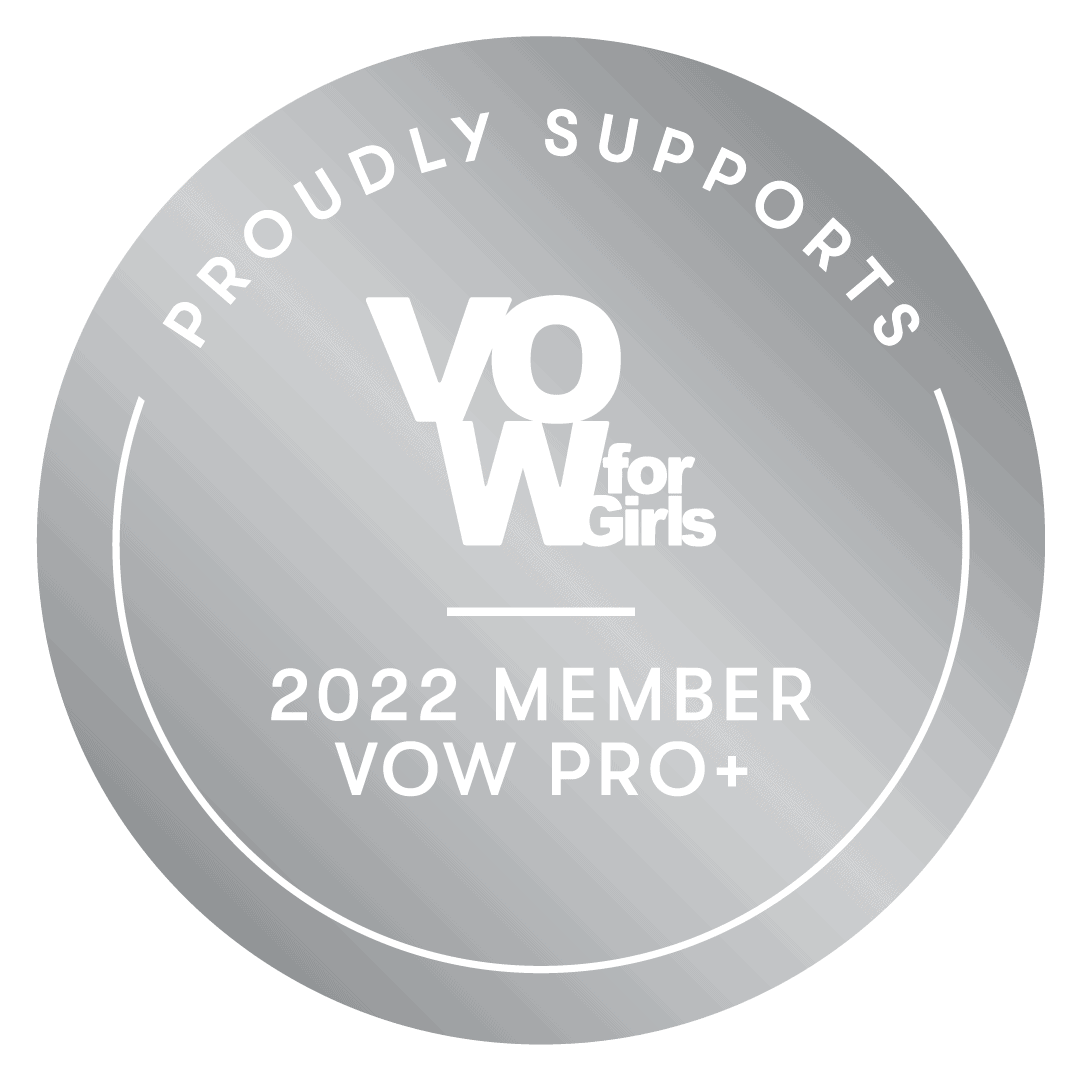In the evolving landscape of celebrancy, many individuals find themselves balancing a full-time job with their passion for celebrancy. Tara Heath-Arnold and Miranda Ash, both experienced celebrants and mentors at The Academy of Modern Celebrancy, recently shared their insights and strategies for managing this dual career path.
If you’re navigating a career change to Celebrancy, the tips here are invaluable. This article distils their conversation into actionable advice for celebrants who might not have the opportunity to listen to the entire interview.
Top tips for balancing becoming a Celebrant with an Existing Job:
1. Set Realistic Goals for Your Celebrant Business:
When you’re starting out as a celebrant, it can be easy to look at the success of others and compare yourself to them. But remember that not everyone is in the same boat, especially if you’re juggling an existing job or family commitments; you might not have as much time to dedicate to your new business, and success might take a little bit longer.
Award-winning celebrant Miranda Ash recommends setting realistic goals, emphasizing the importance of being practical about the time and resources available. She advises celebrants to create a plan and work towards it, tailoring their goals to their current capacity and circumstances rather than comparing themselves to others.
2. Time Management and Goal Setting for Celebrants:
Time management is key for Celebrants who are balancing being a celebrant with an existing job. You’ll need to work smarter and be efficient with the time you have available. Celebrant mentors Tara and Miranda stress the significance of regular goal setting. This involves setting annual, monthly, and even weekly objectives and being adaptable in adjusting these goals based on what is realistically achievable.
Setting time aside to achieve specific goals will focus your mind and energy where it needs to be.
3. Balancing Study and Work:
For those still studying or transitioning into celebrancy, time management becomes even more crucial. Miranda points out that tactics like time-blocking used after studying can also be beneficial during the educational phase, especially given the longer-term nature of AMC’s training program.
Allocate specific time blocks to study and work and make sure you leave time to rest and recharge in between.
4. The Importance of Setting Time Aside for Working on and in Your Business:
When you run your own business, you have to balance the day-to-day demands of being a celebrant: meeting clients, writing scripts, conducting ceremonies, etc., with the essential behind-the-scenes work that gets you booked and keeps the wheels turning: tasks like admin, marketing & business development (which are crucial for growth.), invoicing, etc. Miranda highlights the necessity of allocating time not just for client-facing tasks but also for working on the business itself.
5. Work-Life Balance: Juggling Work and a Celebrant Business:
All work and no play is not the aim of the game here. Celebrancy may feel like a vocation, and it’s definitely a lifestyle career, but it shouldn’t take over your whole life! Most people become Celebrants for the freedom and flexibility the role brings and Miranda and Tara emphasize the importance of maintaining a healthy work-life balance.
You need to be disciplined about managing time for family, self-care, and other personal commitments alongside celebrant work. When you start to get busier, you’ll need to have strong boundaries, and you might even need to block out specific family time when you’re unavailable for bookings.
6. The Importance of Creating Healthy Boundaries:
As we alluded to in the previous tip… setting healthy boundaries, especially regarding availability for different roles, is crucial. This can mean having clear conversations with employers and clients or setting strict personal guidelines on availability and work hours.
Healthy boundaries might look like an out-of-office email response that communicates your working hours and response times, or a social media auto-responder that directs all enquiries to emails so that you’re not trying to have client conversations across multiple platforms.
7. Join Business Growth, and Support Networks for Wedding Celebrants:
It’s really important for the success of your business as a Celebrant to build a support network, which includes fellow celebrants and industry contacts. Such networks can be invaluable for business growth, mentorship, and practical support, so take time out to attend networking meetings and find supportive groups for Celebrants.
8. Wedding Planning and Ceremony Writing with a Focus on Organization and Communication:
Wedding planning and ceremony writing is time-consuming, and you’ll need to be on top of it because you’re juggling an existing job with these demands. Writing an amazing ceremony script takes time, and it also requires input from your clients; To manage your time effectively, you’ll need to have effective organization and clear communication with clients.
Have systems in place to manage client expectations and streamline the process. Use a CMS (Client management system) that has automated reminders to gather the information you need, set deadlines and communicate clear expectations and requirements at each point of the client journey.
9. Essential Tools for Your Business:
Use tools like Calendly and Google Calendar for time management, colour-coding different tasks, which helps you to stay organised and manage various aspects of celebrant and other professional work.
10. Setting Time Aside to Build Your Business:
Finally, Tara and Miranda advocate for dedicating specific time to business development, such as visiting venues and networking, which are crucial for building a successful celebrant business. If you’re working full-time, you might need to negotiate your hours to allow you time to visit venues whilst the management team is there.
Both our mentors discuss the importance of time-blocking for celebrants, so if it’s a new concept for you, here’s how you do it:
How to Effectively Time-Block for Greater Productivity
Time-blocking is a powerful productivity tool that can help you manage your time more effectively, whether you’re balancing multiple jobs, running a business, or juggling personal commitments. Here’s a straightforward guide to get you started:
- Assess Your Tasks and Priorities:
- Begin by listing all the tasks you need to accomplish. This includes work responsibilities, personal errands, and anything in between.
- Prioritize these tasks based on urgency and importance.
- Allocate Time Slots:
- Look at your weekly schedule and start allocating specific time slots for each task.
- Assign more time to high-priority tasks and ensure that each task has a realistic amount of time allotted to it.
- Consider the time of day when you’re most productive for tasks that require more focus.
- Use a Calendar or Planner:
- Utilize a digital calendar (like Google Calendar) or a physical planner to block out time for each task.
- Color-code different types of activities (e.g., blue for work, and green for personal tasks) to easily distinguish between them.
- Integrate Breaks and Buffer Time:
- Don’t forget to schedule breaks to avoid burnout.
- Include buffer time between tasks to account for potential overruns or unexpected interruptions.
- Review and Adjust:
- At the end of each day or week, review your time blocks.
- Adjust future time blocks based on what you’ve learned about how much time tasks actually take.
- Stick to Your Schedule:
- Treat your time blocks like appointments. When it’s time to start a task, focus solely on that task.
- Avoid the temptation to multitask.
- Communicate Your Availability:
- If relevant, inform colleagues or family members of your schedule, especially if your time blocks include periods where you shouldn’t be disturbed.
- Use Tools to Assist You:
- Tools like Calendly can help others see your available slots and schedule meetings accordingly.
- Apps like Focus@Will or Forest can help keep you on track during your time blocks.
- Be Flexible but Disciplined:
- While some flexibility is necessary, try to adhere to your time blocks as closely as possible for consistency and effectiveness.
- Reflect and Adapt:
- Regularly reflect on your time-blocking strategy. Are you consistently over or underestimating time for tasks? Adjust as needed.
Time-blocking can initially seem rigid, but with practice, it becomes a fluid way to manage your time efficiently, leading to increased productivity and reduced stress.
Next Steps…
If you’ve enjoyed this interview, we invite you to join our vibrant community on our Facebook page, where you’ll find more tips, insights, and support from fellow celebrants and professionals.
Additionally, for those of you considering a rewarding career in celebrancy, Download our guide to becoming a wildly successful celebrant. You’ll receive the guide and all the latest updates, including details about our upcoming celebrant training webinar. Don’t miss out on this opportunity to enhance your skills and connect with a network of like-minded individuals passionate about celebrancy. Join us now and take the next step in your celebrant journey!
Jennifer Claire
Jennifer is the Director of the leading celebrant training company, The Academy of Modern Celebrancy as well as the Founder of The Celebrant Directory, supporting over 600 celebrants globally.
Jennifer run a 2.5k community of celebrants who she dedicates her time to helping them grow their businesses and taking celebrancy from a hobby to a lifestyle.
Jennifer heads up the global Celebrant Industry Awards and the global celebrant summit, Celebrantopia each year!
A celebrant herself since 2010, she knows what it takes to make it in the industry and trains the best celebrants out there across the UK, Europe and the USA.
Take the Quiz to find out if you have what it takes!
Download the Ultimate Guide to becoming a Celebrant & find out how you can make this happen!

If you liked this article you may enjoy ...
8 reasons to niche as a Celebrant + how to do it
Niching as a celebrant can offer several distinct advantages, allowing you to specialize in specific types of ceremonies or cater to particular cultural or community groups. Here are 8 reasons we think you should niche as celebrant: 1. Establish Expertise: Specializing in a particular type of ceremony, like traditional pagan handfasting ceremonies, allows you to…
Alternative ceremonies that could skyrocket your celebrant earnings
The riches are in the niches, they say, and that certainly seems to be the case for Celebrants, results of a recent industry survey suggest that offering alternative ceremonies could boost your income as a celebrant. Here at The Academy of Modern Celebrancy, we actively encourage our celebrants to lean into their uniqueness and carve…
Training to be an accredited Celebrant in Spain
Celebrancy is a growing profession in Spain fueled by demand for personalised, non-religious, and interfaith ceremonies, destination weddings and robust ex-pat communities from the UK and beyond. If you’re considering Training to be an accredited Celebrant in Spain, there are a few things you’ll need to know, so we’ve put together this handy guide to…
As featured in










